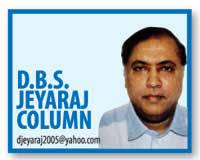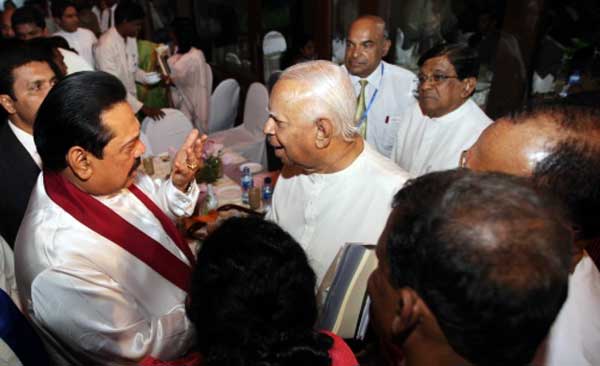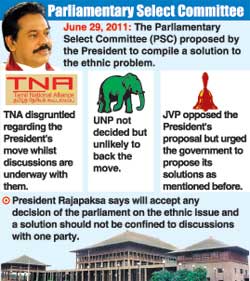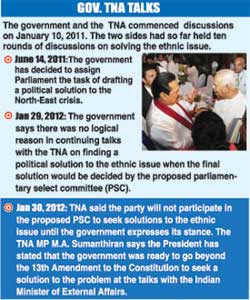18 May 2012 - {{hitsCtrl.values.hits}}
 By D.B.S.JEYARAJ
By D.B.S.JEYARAJ
 The visible lack of effective progress on political rapprochement with the TNA reflects badly on the Govt. The TNA due to its creditable performance in democratic elections and by articulating its political stance through acceptable, moderate terms has earned the regard and endorsement of the International Community. The Government’s perceived inability or unwillingness to even engage the TNA in political discussions does not project a positive image internationally.
The visible lack of effective progress on political rapprochement with the TNA reflects badly on the Govt. The TNA due to its creditable performance in democratic elections and by articulating its political stance through acceptable, moderate terms has earned the regard and endorsement of the International Community. The Government’s perceived inability or unwillingness to even engage the TNA in political discussions does not project a positive image internationally..jpg) SUSPICION
SUSPICION.jpg) SAFETY NET
SAFETY NET EXTREMIST
EXTREMIST DOCUMENTS
DOCUMENTS
17 Nov 2024 15 minute ago
17 Nov 2024 3 hours ago
16 Nov 2024 8 hours ago
16 Nov 2024 9 hours ago
16 Nov 2024 9 hours ago